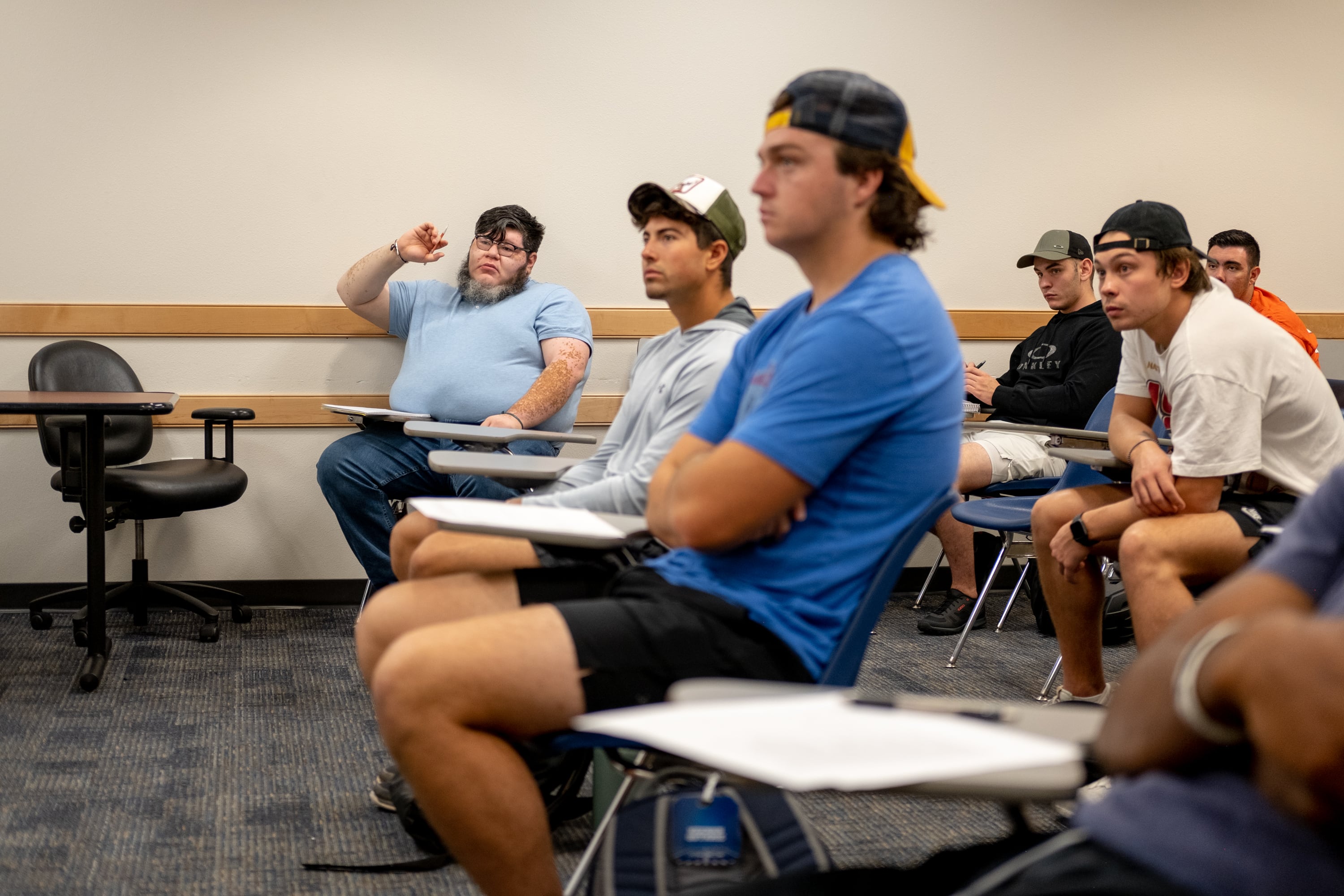Get Chalkbeat Colorado’s latest reporting on college and career paths for Colorado high school grads in our free monthly newsletter Beyond High School.
Colorado remains one of the most educated states in the country despite losing some ground during the pandemic, according to a new report.
More Black and Hispanic Coloradans report having a degree or other postsecondary credential than did two years earlier, a small sign of progress in a state with large gaps in educational opportunity. The survey compared residents ages 25 and older in 2021 with 2019.
But many states made more progress toward improving college attainment than Colorado did.
The Lumina Foundation’s A Stronger Nation report released Tuesday provides an annual look at educational progress in the nation and individual states to show how well working adults are getting the skills needed to qualify for higher-paying, skilled jobs by earning college degrees, credentials or certificates. (Lumina is a funder of Chalkbeat. See our funders here and read our ethics policy here.)
Lumina uses A Stronger Nation to track the country’s progress toward the goal of 60% of the population getting a degree or credential of some sort. Forty eight states, including Colorado, have a goal to improve college attainment rates.
Here are five Colorado takeaways from the report.
Colorado lost some ground during the pandemic
Overall, in two years the nation improved college attainment levels by nearly 2 percentage points, to 53.7% in 2021 — its largest two-year growth, according to a news release. Idaho, Mississippi, South Dakota, Utah, and Vermont grew their college attainment levels the most during that span, said Courtney Brown, Lumina’s vice president of impact and planning.
Over the same period, Colorado regressed slightly, but remained a leader. The state dropped from 61% of residents having a degree or credential to 60.5%.
Colorado has a goal of getting 66% of its residents earning a college degree, certificate, or credential by 2025. But Colorado likely won’t reach that goal. The report says the state would have to significantly increase how many people it educates.
The report does not distinguish between people educated elsewhere who move to Colorado and people from Colorado who get a degree here. Historically, Colorado has imported a large share of its educated population while sending its high school graduates to college at rates below the national average.
Brown pointed to the pandemic as to why Colorado and some others experienced stagnant growth and ran into troubles.
The number of people that have earned a certificate or college credential dropped, likely because those programs are typically in-person, hands-on programs and had reduced enrollment during the early days of the pandemic.
Brown also said a boost in wages at entry-level jobs lured students away from education. And some people couldn’t go to college because they had to support their families or because they got sick.
College-educated Black and Latino residents grow
The Centennial State slightly outpaced the nation in growing the share of Black and Latino Coloradans with a college degree, certificate, or credential.
In the two years leading to 2021, Colorado Hispanic college attainment grew 3 percentage points, to 28.1%,. The Hispanic population in the nation as a whole also saw strong growth, up to 27.8%, a gain of 2.3 percentage points.
In Colorado, Hispanics still have the lowest share of college education among all residents.
Colorado’s Black education level beyond high school grew in the same two years by 2.4 percentage points to 40.3%. Black residents nationwide grew 1.8 percentage points to 34.2% in 2021.
Younger Native American residents less likely to go to college
In a troubling trend from 2019 to 2021, Native American college attainment levels have remained mostly flat for those ages 25 to 34.
The proportion of those with schooling beyond high school nudged up from 18.8% to 19.1%.
Those numbers have dropped precipitously since 2014, when 30% of the Native American population ages 25 to 34 had a college degree or credential, signaling that an older population of Native American residents are boosting college attainment levels in the state, with 35.4% of that population having a college education.
More Coloradans went back to school — and more dropped out
As Brown noted, the portion of Colorado residents with a certificate, credential, or who have some college shrunk. But when looking only at college attainment, the proportion of Colorado adults who hold a degree actually grew.
Brown said the report shows that many Colorado residents with a certificate or credential returned to school to further their education. Overall, the number of residents who hold a masters, bachelors, or associate’s degree increased.
Nonetheless, the number of Coloradans who enrolled but never finished college also increased.
Colorado has made a big push in recent years to get more people who dropped out of college to go back and finish. The full impact of those efforts won’t be clear for several more years.
It’s unclear how those migrating to or away from the state have impacted the state.
College education is concentrated in certain counties
The breakdown of which Colorado counties have the highest share of college-educated residents is hardly surprising.
Boulder, Broomfield, Douglas, and Pitkin counties lead the state in credentialed residents. Boulder boasts about 70.6% of its residents with a college degree or credential, and the other three hover at about 70%.
The lowest levels of college attainment, are in two Eastern Plains counties. Just 19.2% of Bent County’s residents have an education beyond high school. Nearby Crowley County is similar, at 19%.
Jason Gonzales is a reporter covering higher education and the Colorado legislature. Chalkbeat Colorado partners with Open Campus on higher education coverage. Contact Jason at jgonzales@chalkbeat.org.






